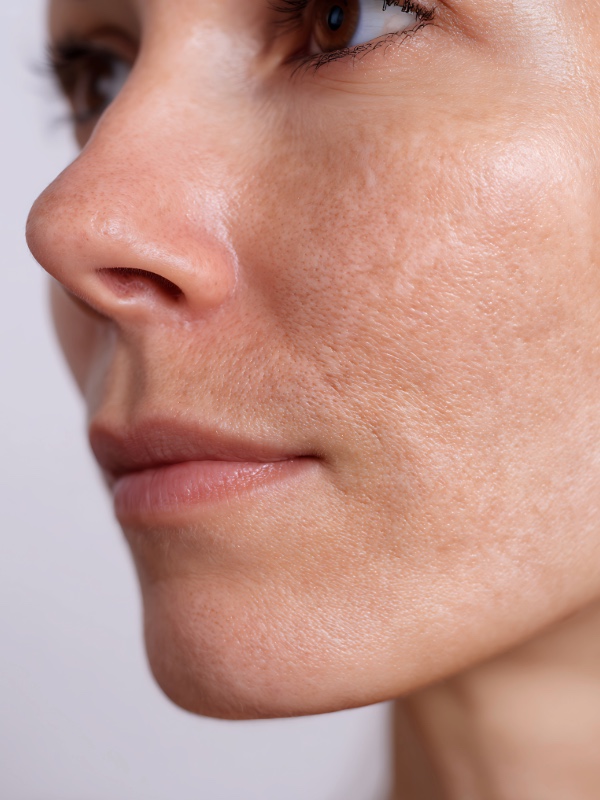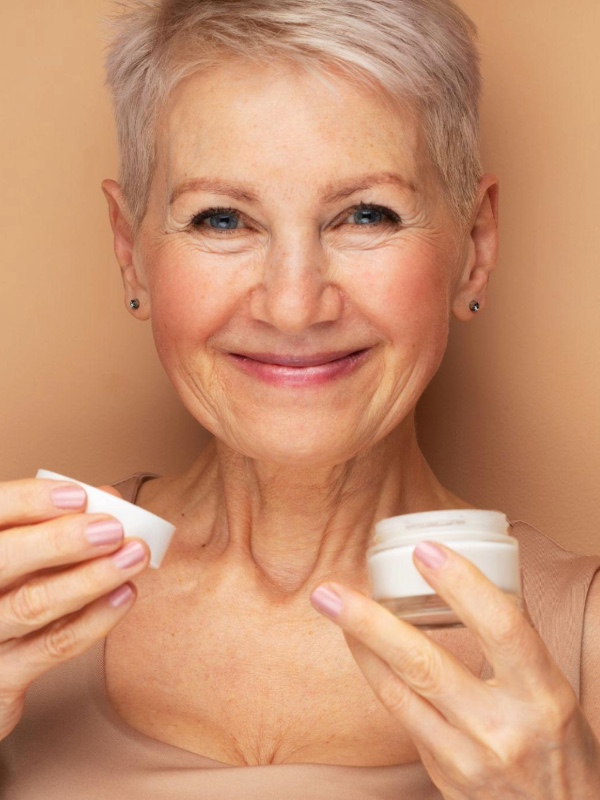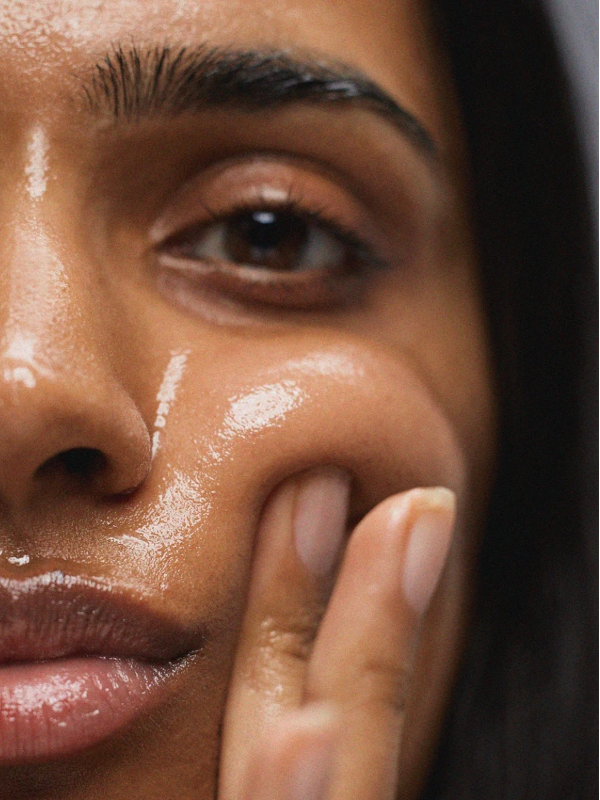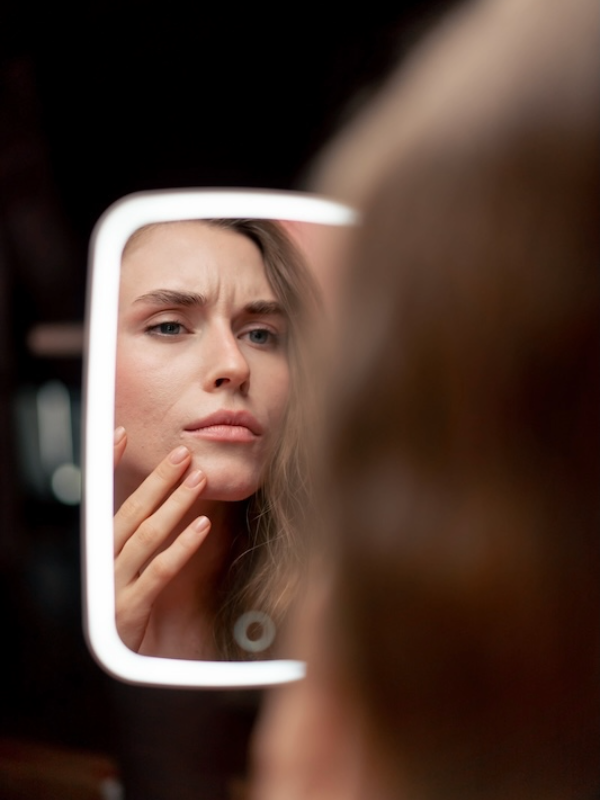Dry Skin: Why it happens and how to care for it?
If you’ve ever looked in the mirror and thought, “Why does my skin feel so tight all the time?” or noticed your foundation clinging to little flakes you didn’t even know you had, chances are you’ve experienced dry skin.
Dry skin is one of those things that can sneak up on you. In your 20s you might have had that fresh, dewy glow, but as the years roll by you find yourself reaching for thicker creams, topping up with lip balm all day, or dreading winter because your face feels like parchment paper. If that sounds familiar, you’re not alone — and the good news is there’s plenty you can do to bring comfort and glow back to your skin.
What dry skin really means?
People often confuse “dry” and “dehydrated,” but they’re not quite the same.
- Dry skin is a lack of natural oil (sebum). This is usually a skin type — something you’re born with or that develops more permanently with age.
- Dehydrated skin is a lack of water. This is a temporary condition that can happen to anyone, even if your skin is oily.
Here’s the important part: when your skin doesn’t make enough oil, it also struggles to hold on to water. That’s why dry skin often feels rough and tight at the same time.
How to know if you have dry skin?
Dry skin has a way of making itself known. See if any of these sound familiar:
- Your skin feels tight and uncomfortable after cleansing — like you need to rush for your moisturiser.
- You notice rough patches, especially on your cheeks, forehead, or around the nose.
- Your complexion looks a bit dull or ashy, no matter how much cream you use.
- Fine lines and wrinkles seem more visible, especially around the eyes and mouth.
- In winter, your face gets flaky, sore, or even itchy.
And if you wear makeup? That’s often the giveaway. Foundation clings to dry patches, powders settle into fine lines, and by midday your makeup looks patchy or uneven. Without makeup, the skin often looks flat, slightly red in places, and a little rough to the touch.
Does that sound like you? If yes, you’re in good company — dry skin is incredibly common, especially as we get older.
Why age makes dryness worse?
Anyone can have dry skin, even children, but it tends to get more noticeable as we age. Here’s why:
- Oil production slows down. In our younger years, the sebaceous glands are active. By our 40s and 50s, they naturally produce less oil.
- Hormonal changes. Around menopause, drops in oestrogen accelerate dryness, leaving skin feeling more fragile.
- Thinner barrier. With age, the skin’s natural barrier weakens, making it harder to keep moisture locked in.
This explains why someone in their mid-20s might get away with skipping moisturiser, while someone in their 50s might feel uncomfortable without it.
However, dry skin doesn’t just come from within — daily habits and the environment play a big part too.
- Hot showers (the hotter the water, the more oil you wash away).
- Harsh soaps or foaming cleansers.
- Cold winds or heated indoor air.
- Overdoing scrubs and exfoliants.
- Using products with strong fragrances or alcohols.
The right way to cleanse dry skin
Cleansing is important, but with dry skin, less really is more.
- Morning: skip the heavy cleansers. A splash of lukewarm water or a very gentle cream cleanser is enough.
- Evening: never skip! This is when you wash off makeup, SPF, and the day’s impurities. Go for a creamy, balm, or oil cleanser that removes dirt without stripping the skin.
The sweet spot? One proper cleanse daily (at night) and a light refresh in the morning.
The everyday routine
You don’t need a cupboard full of products. A simple, nourishing routine will do wonders:
Daytime
- Gentle Cleanser such as Mild Creamy Cleanser – creamy or milky.
- pH Balanced Toner such as Radiant Firming Tonic
- Hydrating Serum such as Deep Xpress Moist Serum with ingredients like hyaluronic acid or glycerin.
- Moisturiser such as Super Hydrating Cream – rich in ceramides and fatty acids to repair the barrier.
- SPF 30–50 – don’t skip sunscreen; UV makes dryness and fine lines worse.
Tip: Always apply products to slightly damp skin. It locks in more hydration.
Night-time
- Cleanse with Mild Creamy Cleanser– double cleanse if you’ve worn makeup or SPF
- pH Balanced Toner such as Radiant Firming Tonic
- Hydrating Serum – peptides or humectants to replenish overnight.
- Rich Night Cream such as Hyaluron3 Replenish Cream thicker than your day cream, with avocado oil
- Optional (a few nights a week): such as Hyaluron Impulse 50 caps - a gentle retinol or peptide serum to encourage renewal, followed by a nourishing cream.
Exfoliation: less often, more gentle
Dry skin still needs exfoliation — but gently and less often.
- 30–45 years: 1–2 times per week with lactic acid or enzyme exfoliants.
- 45–60 years: Once a week with mild AHAs or enzyme masks.
- 60–75 years: Every 10–14 days with the gentlest enzyme or cream exfoliants.
Harsh scrubs? Skip them. They’ll only damage your skin barrier.
Myths you’ve probably heard
“Drink more water, it will fix it.” Drinking water helps your body, but it doesn’t replace the oils your skin is missing.
“Face oils are enough.” Oils can seal in moisture, but they don’t replace a proper moisturiser.
“Don’t exfoliate, it will make dryness worse.” Overdoing it will, but the right kind of exfoliation makes dry skin healthier.
Lifestyle tips that make a difference
- Short, lukewarm showers — not hot.
- Pat skin dry with a soft towel, don’t rub.
- Use a humidifier in winter or when heating is on.
- Choose fragrance-free skincare and laundry detergents.
- Apply moisturiser within a few minutes of cleansing to trap water in.
Final words
Dry skin isn’t a flaw — it’s just a skin type that needs a little extra kindness. If you see yourself in the signs we’ve talked about - tightness, flaking, dullness, makeup that doesn’t sit right — chances are your skin is calling out for more oil and hydration.
With gentle cleansing, the right moisturiser, and a few smart habits, dry skin can feel comfortable again. And when it does, you’ll notice your complexion softening, fine lines looking less harsh, and makeup sitting beautifully.
Dry skin might be common, but with the right care, it doesn’t have to hold you back from glowing, healthy skin at any age. At Skinportant Skin Clinic, we specialise in treating damaged and dry skin. Our treatments are meticulously designed to cater to each skin type, providing targeted care and optimal results. Our Deep Hydration Facial is particularly formulated to address dry skin effectively, delivering maximum benefits.




